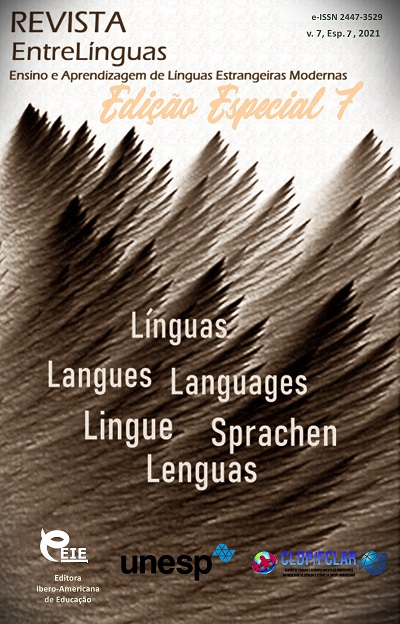Globalization influence as the key factor in the international ralations development: ecomony, science, culture, language determinants
DOI:
https://doi.org/10.29051/el.v7iesp.7.16278Keywords:
Globalization, International relations, Theoretical aspects, World community, Global economy, Global communication, Global science, Global language, Global way of lifeAbstract
The purpose of the article is to identify the peculiarities of theoretical problems of the globalization process influencing the economic, political, cultural and linguistic life processes internationally. According to the research work, international relations development is strongly influenced by the leading role of dominant impact of the need to find the unique way in collaboration, intensification of the internationalization and globalization processes. The authors pay special attention to the fact that acceleration in the rates of development poses new threats and challenges and they require adequate actions of the international community. On this basis, it is necessary to stress, globalization is seen in a necessity to unite world community to deal with integration and predictability. One must admit, strengthening of organization mechanisms and development management is of great importance today, therefore, there is an overall strengthening of supranational structures and it is necessary for successful progress.
Downloads
References
AWONUSI, M. Man-made language. London: Routledge. 76P. 2002.
BAGHANA, J., PROKHOROVA, O. N., VOLOSHINA, T. G., BLAZHEVICH, Y. S., KUKSOVA, E. L. Interaction of languages as the main factor of linguistic interference. International Journal of Engineering & Technology, 7 (4.38): 1580-1583. 2018.
Crystal D. English as a global language. – Cambridge: “Cambridge University Press”. 316 p. 2003.
EGBE, M. English as a second language and second language teaching. Ago Iwoye: Olabisi Onabanja University Press. p.109. 2010.
KATCHRU, B. The handbook of World Englishes. – Malden: “Blackwell Publishing Ltd”. 833P. 2006.
PHILLIPSON, R. Linguistic Imperialism. – Oxford: “OUP””. 57 p. 1992.
POPLACK, S., MEECHAN, M. Instant loans, easy conditions. The productivity of bilingual borrowing. Pp.127-134. 1998.
SIMONS, G.F., FENNIG, C.D. Ethnologue: Languages of the World. Texas: “SIL International”. 33P. 2017.
VOLOSHINA, T. G., BLAZHEVICH, YU.S. The influence of the English language on the linguoculturological state (on the example of African linguoculture). Cross-cultural communication and world politics: modern problems (May 15-16, 2019). Belgorod: Publishing House "Belgorod". Pp. 83-86 (In Russian). 2019.
VOLOSHINA, T.G. Variability of the English language in the era of globalization. Modern science: Current issues, achievements and innovations: collection of articles of international scientific-practical conference. Penza: Science and Education. Pp. 156-158 (In Russian). 2018.
VOLOSHINA, T.G., KOCH K.I., RODINA L.I., OSTAPOVA L.Y., BOCHAROVA E.A. Interference peculiarities in the period of Globalisation. Revista Dilemas Contemporáneos: Educación, Política y Valores. Año: VI Número: Edición Especial. Artículo no.:148 Período. 2019.
Downloads
Published
How to Cite
Issue
Section
License

This work is licensed under a Creative Commons Attribution-NonCommercial-ShareAlike 4.0 International License.
Os manuscritos aceitos e publicados são de propriedade da Revista EntreLínguas. Os artigos publicados e as referências citadas na Revista EntreLínguas são de inteira responsabilidade de seus autores.
Transferência de direitos autorais – autorização para publicação
Caso o artigo submetido seja aprovado para publicação, já fica acordado que o(s) autor(es) autoriza(m) a UNESP a reproduzi-lo e publicá-lo na EntreLínguas, entendendo-se os termos “reprodução” e “publicação” conforme definição respectivamente dos incisos VI e I do artigo 5° da Lei 9610/98. O artigo poderá ser acessado pela rede mundial de computadores (Internet), sendo permitidas, a título gratuito, a consulta e a reprodução de exemplar do artigo para uso próprio de quem a consulta, desde que haja a citação ao texto consultado. Essa autorização de publicação 328 EntreLínguas, Araraquara, v. 1, n .2, p. 323-328, jul./dez. 2015 não tem limitação de tempo, ficando a UNESP responsável pela manutenção da identificação do(s) autor(es) do artigo. Os artigos publicados e as referências citadas na Revista EntreLínguas são de inteira responsabilidade de seus autores.











